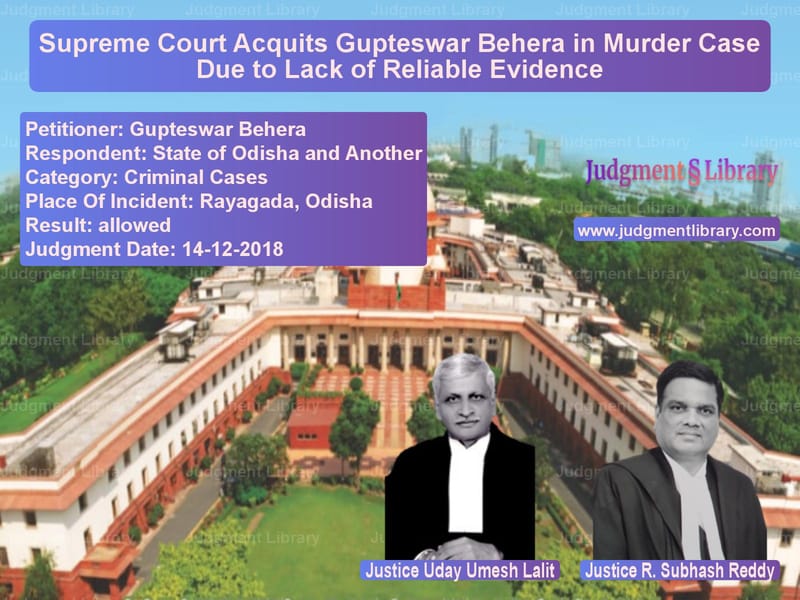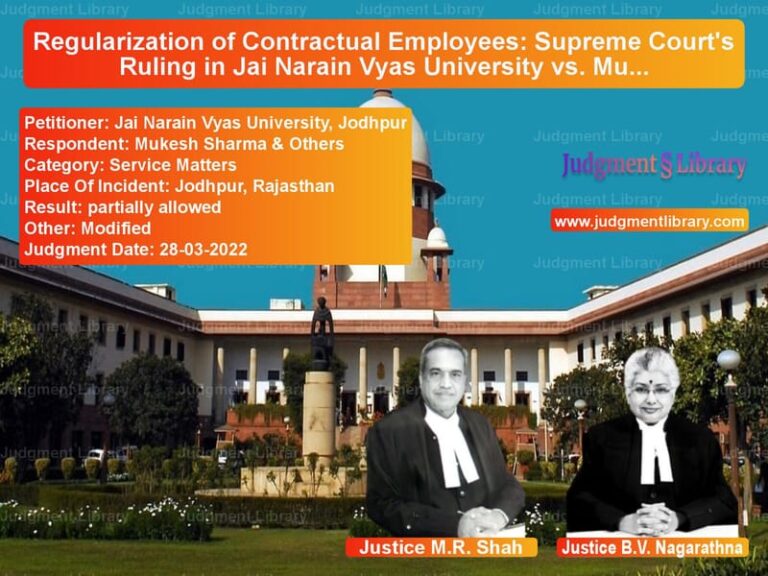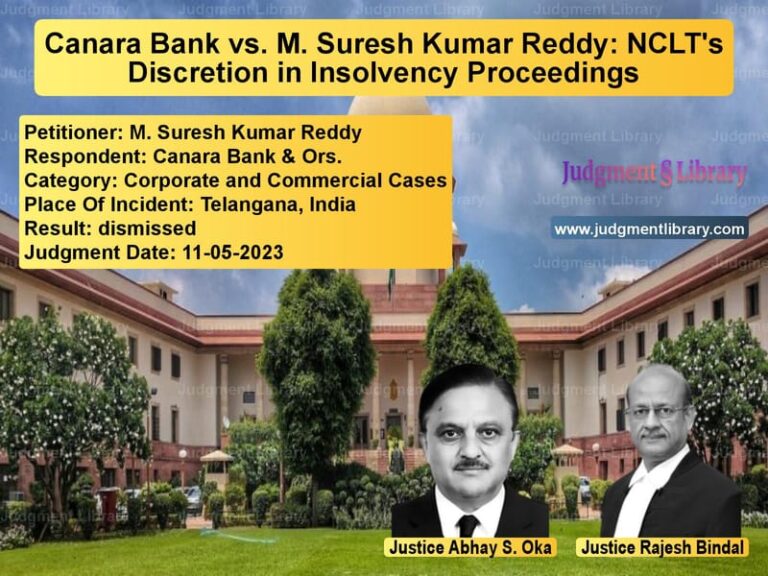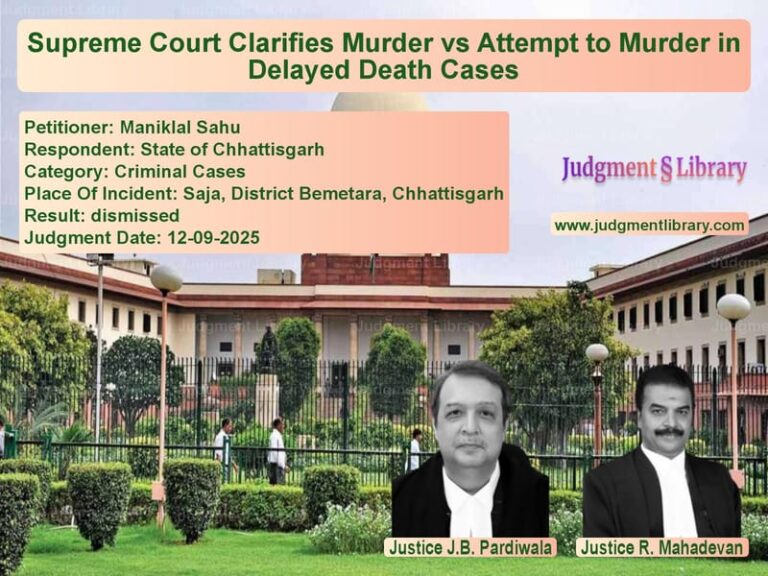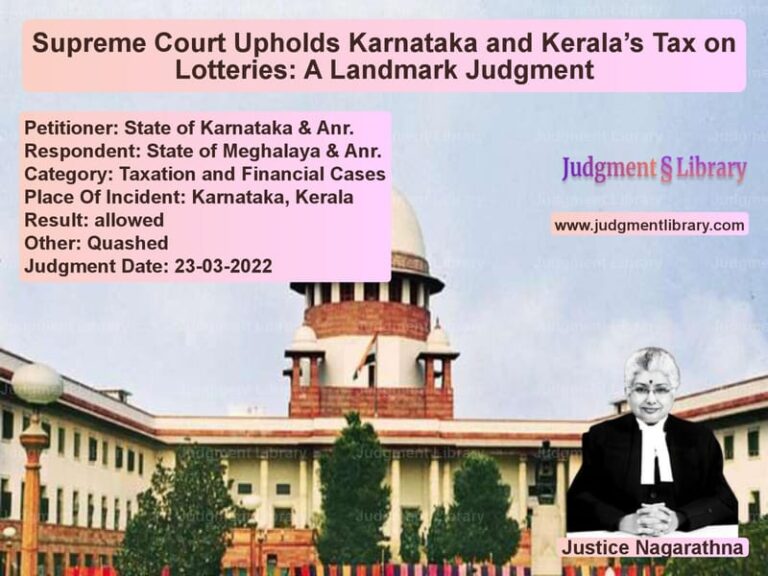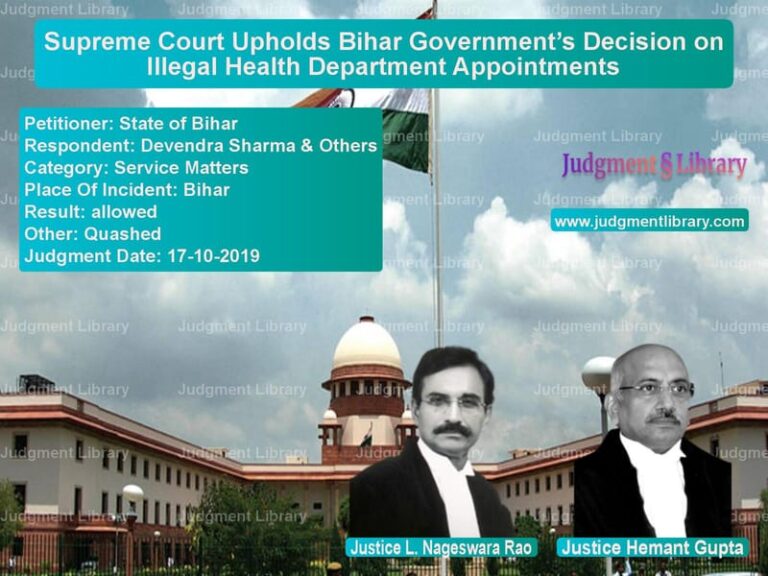Supreme Court Acquits Gupteswar Behera in Murder Case Due to Lack of Reliable Evidence
The Supreme Court of India, in a landmark ruling, acquitted Gupteswar Behera of murder charges, setting aside previous judgments by the Sessions Court and the High Court of Orissa. The case revolved around the murder of Raghumani, who was found severely injured on a roadside and later succumbed to his injuries. The prosecution’s case was largely based on dying declarations, but the Supreme Court questioned their reliability, ultimately granting the appellant the benefit of the doubt.
Background of the Case
The case began with an FIR registered on November 15, 1995, at 9:00 PM at Rayagada Police Station. The complainant, Pradeep Kumar Patra (PW1), stated that he was informed by a witness, Kumurika Nabina, that his brother Raghumani had been attacked and was lying injured. Upon reaching the spot, PW1 found Raghumani in a pool of blood with multiple injuries. According to the prosecution, Raghumani named his assailants before succumbing to his injuries. The police charged six individuals, including Gupteswar Behera, under Sections 148 and 149 read with Section 302 of the Indian Penal Code (IPC).
Medical Evidence and Its Impact
During the trial, the prosecution presented medical evidence through Dr. Braja Kishore Das (PW13) and Dr. Bipin Chandra Padhy (PW14). Their testimony revealed that Raghumani suffered fourteen injuries, including eleven incised wounds. The doctors concluded that the victim would have lost consciousness within five minutes of sustaining these injuries and could not have survived beyond ten minutes. PW14 categorically stated, “The injured can survive for a few minutes by receiving such injuries. The patient cannot regain sense by losing sense in this particular type of case.”
Conviction by Lower Courts
The Additional Sessions Judge, Rayagada, found all six accused guilty and sentenced them to life imprisonment. The conviction was based on the dying declarations recorded by PW1 and PW15, the Investigating Officer. The accused then appealed to the High Court of Orissa, which upheld the conviction for two of them, including Gupteswar Behera, while acquitting one co-accused due to a lack of credible evidence. Three accused had died during the appeal process, leading to the abatement of their appeals.
Supreme Court’s Analysis and Ruling
When the case reached the Supreme Court, the bench, comprising Justices Uday Umesh Lalit and R. Subhash Reddy, critically analyzed the evidence presented by the prosecution. The Court observed that the alleged dying declarations made to PW1 and PW15 were highly doubtful, given the medical evidence suggesting that the victim could not have remained conscious long enough to make such statements. The judgment noted:
“If the number of injuries suffered and their location and extent are considered, the assertions made by both the medical professionals that the deceased may not have survived for more than ten minutes after receiving the injuries appear to be quite correct.”
Further, the Court questioned whether the victim had enough time to speak to both PW1 and PW15 separately before succumbing to his injuries. Given the time taken for PW1 to be informed and then reach the location, followed by the arrival of the police, the Court found it extremely doubtful that the victim could have given two separate statements.
The Supreme Court also noted inconsistencies in the witness statements. The supposed eyewitness accounts (PWs 4 and 5) were recorded several days after the incident, reducing their reliability. Given these inconsistencies, the Court concluded that the appellant was entitled to the benefit of the doubt.
Final Verdict
In its concluding remarks, the Supreme Court ruled:
“The appellant is, therefore, entitled to the benefit of the doubt. In the circumstances, this appeal is allowed. The judgments and orders passed by the Sessions Court and the High Court are set aside, and the appellant is acquitted of all the charges leveled against him. He be set at liberty unless his custody is required in connection with any other case.”
This judgment underscores the importance of reliable medical and forensic evidence in criminal cases. The Court’s emphasis on inconsistencies in witness testimonies and the improbability of the dying declarations highlights the critical need for thorough and accurate evidence in securing convictions. The acquittal of Gupteswar Behera serves as a reminder of the judiciary’s commitment to upholding the principles of justice and due process.
Petitioner Name: Gupteswar Behera.Respondent Name: State of Odisha and Another.Judgment By: Justice Uday Umesh Lalit, Justice R. Subhash Reddy.Place Of Incident: Rayagada, Odisha.Judgment Date: 14-12-2018.
Don’t miss out on the full details! Download the complete judgment in PDF format below and gain valuable insights instantly!
Download Judgment: Gupteswar Behera vs State of Odisha and Supreme Court of India Judgment Dated 14-12-2018.pdf
Direct Downlaod Judgment: Direct downlaod this Judgment
See all petitions in Murder Cases
See all petitions in Bail and Anticipatory Bail
See all petitions in Custodial Deaths and Police Misconduct
See all petitions in Judgment by Uday Umesh Lalit
See all petitions in Judgment by R. Subhash Reddy
See all petitions in allowed
See all petitions in supreme court of India judgments December 2018
See all petitions in 2018 judgments
See all posts in Criminal Cases Category
See all allowed petitions in Criminal Cases Category
See all Dismissed petitions in Criminal Cases Category
See all partially allowed petitions in Criminal Cases Category

